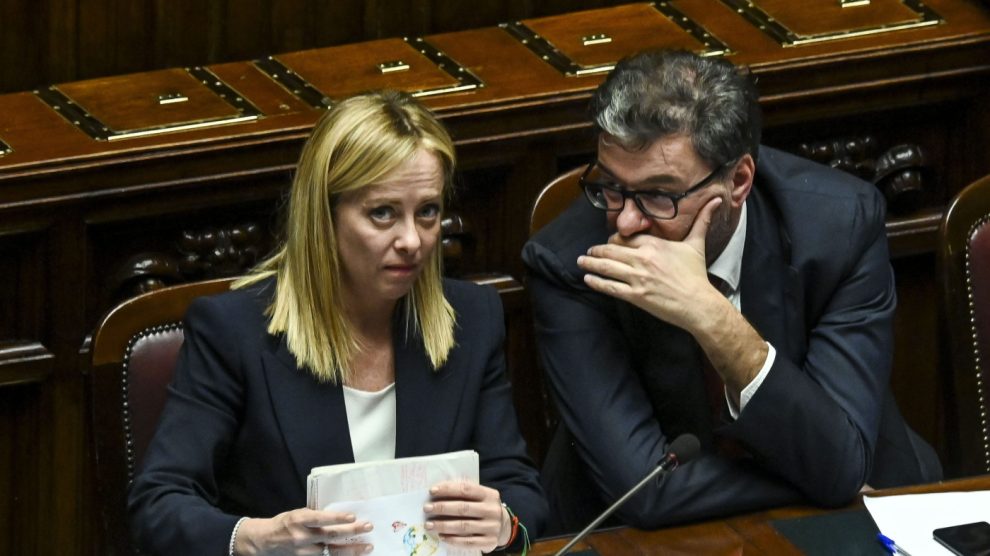Here it is: Meloni’s first budget. Late on Monday night, the Council of Ministers rubber-stamped the 2023 Budget Law, amounting to a €35 billion roadmap laying out the government’s priorities. 21 billion were already earmarked to counter energy bills, by far the country’s most pressing issue, with 14 additional billions being spread elsewhere.
- In the words of Economic Minister Giancarlo Giorgetti, the budget “is based on a prudent and realistic approach,” taking into account the current economic conditions and the international scenario while remaining “sustainable for public finance.”
- Keyword: stability. The somewhat understated budget is geared at reassuring both Brussels and international investors with a necessity-oriented plan.
- The deficit to GDP ratio is projected at 4,5% of GDP, a reduction from this year’s 5.6%. Public debt is geared at descending from 145.7% of GDP this year to 144.6%.
Here’s a low-down of the key measures.
Energy bills: most of the money will go to supporting families and businesses in countering sky-high energy prices and inflation. The budget slashes some bill charges and energy taxes for energy-hungry and non-energy-hungry businesses by 40-45% and 30-35%, respectively.
Taxes: the flat 15% tax has been extended from a ceiling of €65,000 to €85,000, although it’s only true for self-employed workers. Her allies Matteo Salvini (League) and Silvio Berlusconi (Forza Italia) had promised it across the board, but PM Meloni chose the safer route.
- VAT was also reduced from 10% to 5% on some necessity items (including tampons and childcare products), but not as many as Mr Salvini wanted.
Citizen’s income: the highly-contested support mechanism will be reduced in 2023 – meaning employable people can only request it for eight months – and disappear entirely in 2024, to be replaced by another system. Beneficiaries will now lose access if they refuse a job offer.
Pensions: workers can now access an early retirement scheme with 41 years of contributions and at least 62 years of age, with benefits if they decide to keep working. Women can retire at 58 with two children or more, 59 with one child, and 60 in other cases.
The bottom line: the gaps between what coalition members promised and what his budget delivered could well become points of contention within the government alliance later on, with Messrs Berlusconi and Salvini seeking to make a scapegoat out of PM Meloni alone.
- Also, the planned abolition of the citizen’s income scheme will elicit a strong response from its beneficiaries (2,3 million, including 660,000 employable citizens) and the left, especially the Five Star Movement, as it was its flagship policy.





